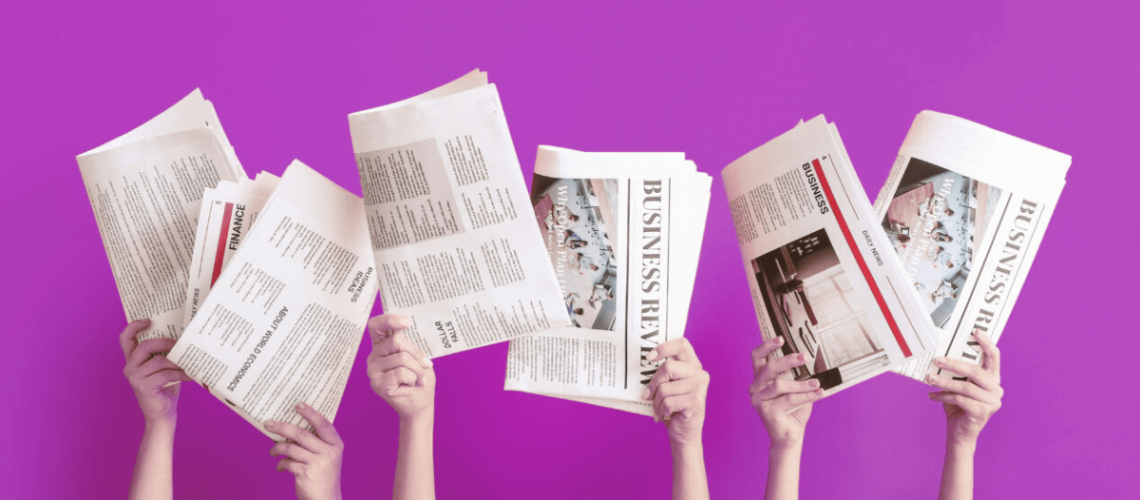“The year is 2020. Breaking News no longer forms part of a newspaper article being sold at the robot for R2.50, it’s being announced on Twitter at 20:15: “The alcohol ban has been reinstated,” the crowd goes wild! Network lines go crazy, network providers are experiencing a surge in the data bundles being purchased by their users, everyone is tagging everyone on Facebook, Instagram users are posting stories of their dismay at the sudden announcement. But magazines and newspapers are laying off staff because the pandemic has resulted in a steep decline in sales. Our most beloved Bona, People, and Farmers Weekly magazines will no longer be in circulation. 2020, The year of the digital age.”

If the above sounds like a prelude to a local film written and produced in Pretoria, you’re half right. Only, this isn’t a movie, it’s the reality we’re facing – print media is declining at a fast pace, while digital media takes over. In the age of false news and hacking of information, online news seems to be more accessible, affordable fitting for the 4th industrial revolution the world seems to be heading in. While the novel pandemic has discouraged close contact, this means that anything that can be achieved online should take first preference, and online media has won this war.
The devastating impact of the lockdown has created unfavourable working conditions for printing companies and newsrooms. The money made from advertising and the hosting of events has all disappeared with the snap of a finger. Couple that with the unsteady unemployment rate of almost 30%, and you have an economy which makes it almost impossible to continue living where we left off. The gloomy reality this has created for the publishing houses has resulted in the further drop of traditional news – which was already in downpour since the mid-2000s.
The buying of newspapers and magazines has been perceived by many as tedious. With the increase of recycling, many activists have urged that the using of soft copies is more efficient than printing. Where newspapers and magazines would pile up in the waiting room for visitors to page through while they wait for their names to be called in for a doctors appointment, we now scroll through aimlessly on Tik Tok, or we check our work emails while submitting our school assignments all with a click of a button. According to Joseph Ahrens, advertising makes most of the print media’s income, and without that, then the industry is a whole lot of trouble. Think about it: where do you get job posts, the selling of 2nd hand goods and concert dates? The answer? Online. Where do you hear of your favourite shop having a 50% sale on their items? Online. Where are you reading this article? Online. The reality is, almost everything is online, the move towards the 4th Industrial Revolution which is the technology of things is online.

While the New York Times has succeeded in making money from offering their content to subscribers, this hasn’t been too successful for many. News seekers get their content delivered to their inboxes via their favourite YouTubers who get to monetise their channels without their subscribers having to pay a cent. Social media has awarded everyday individuals the opportunity to experience the rush of reporting. Countlessly, we’ve seen videos and photos of breaking news being captured online and trending even before news sources get a hold of them for broadcasting. Joseph also notes that online media is shaped by individuals who consume it. If print media were to present itself as an influencer – therefore shaping the outline and concepts of the readers before they make informed decisions, might save print media. Or perhaps killing two bird with one stone by investing both in online and print media before discarding of their magazines and newspapers. Regardless, slowly but surely, print media for commercial use is declining, and The Internet of Things is slowly replacing it.

